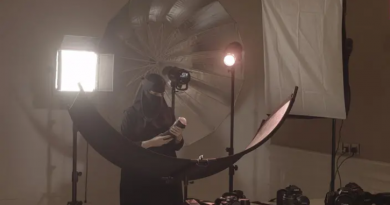Pfizer, BioNTech vaccine neutralises Omicron with three shots
Washington (Reuters) – BioNTech and Pfizer (PFE.N) said on Wednesday a three-shot course of their COVID-19 vaccine was able to neutralise the new Omicron variant in a laboratory test and said they could deliver an upgraded vaccine in March 2022 if needed.
BioNTech and Pifzer are the first manufacturers of a COVID vaccine to issue an official update on the efficacy of their shot against Omicron.
The German and U.S. companies said two doses of their vaccine resulted in significantly lower neutralising antibodies but a third dose boosted those antibodies by a factor of 25.
In the first official statement from manufacturers on the efficacy of their vaccine against Omicron, they said two doses resulted in significantly lower neutralising antibodies but a third dose boosted those antibodies by a factor of 25.
The Omicron variant was neutralised in samples of blood taken around a month after the third shot about as effectively as two doses neutralised the original virus identified in China.
“Ensuring as many people as possible are fully vaccinated with the first two dose series and a booster remains the best course of action to prevent the spread of COVID-19,” Pfizer boss Albert Bourla said in the statement.
The Omicron variant, first detected in southern Africa last month, has triggered global alarm about another surge in infections. Cases have already been reported from Japan to the United States and across Europe.
The World Health Organization classified Omicron on Nov. 26 as a “variant of concern” but said there was no evidence to support the need for new vaccines specifically designed to tackle the variant and its mutations.
Nevertheless, the companies said they would continue efforts to bring an Omicron-specific COVID-19 vaccine to market. Work had started when the variant first raised concern on Nov. 25.
They said their planned production of 4 billion doses of the Comirnaty vaccine in 2022 was not expected to change if an adapted vaccine was required.
The findings are broadly in line with a preliminary study published by researchers at the Africa Health Research Institute in South Africa on Tuesday, which said Omicron could partially evade protection from two doses of the Pfizer/BioNTech vaccine and suggested a third shot might help fend off infection.
Research on the new variant is still at an early stage. Laboratory analysis at University Hospital Frankfurt in Germany found the ability to mount an antibody response to Omicron in people who had three shots was up to 37 times lower than the response to Delta.
“The companies believe that vaccinated individuals may still be protected against severe forms of the disease,” BioNTech and Pfizer said, although lab data and real-world monitoring had yet to yield new insights.
The vast majority of surface structures on the Omicron spike protein targeted by the T-cells, which typically emerge after vaccination, are not affected by Omicron’s mutations, they said.
T-cells are the second pillar of an immune response, alongside antibodies, and are believed to prevent severe disease by attacking infected human cells.
For their analysis, the two companies used a virus that was bio-engineered to have the hallmark mutations of Omicron, known as a pseudovirus, and blood was collected from subjects three weeks after a second vaccine dose or one month after a third.
There is no significant data yet on how vaccines from Moderna (MRNA.O), Johnson & Johnson (JNJ.N) and other drugmakers hold up against the new variant but they are expected to release their own data within weeks.


